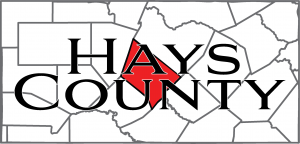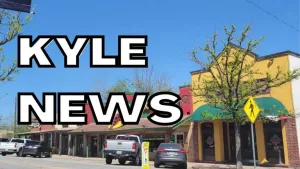By Moses Leos III
Kyle residents who owe outstanding municipal fines to the city may not be able to hide for much longer.
With the implementation of new license plate reader (LPR) technology, the Kyle Police Department hopes to not only mitigate outstanding warrants, but also keep people from possibly finding themselves behind bars.
“I realize people sometimes forget to take care of obligations. If this allows them to take care of the obligation, and avoid going to jail and avoid having their car impounded, and avoid other consequences … we think it’s a good situation,” Kyle Police Chief Jeff Barnett said.
The new technology comes as part of an agreement between the city and Vigilant Solutions. The Kyle City Council via a 6-0 vote on Jan. 4 approved the agreement, making the department the first in Hays County to implement a license plate reader system.
Vigilant Solutions would provide license plate reader hardware for three Kyle Police vehicles at no cost. The city would pay roughly $2,000 to Vigilant.
The motive behind acquiring the technology was to assist in curbing the amount of outstanding fines and warrants owed to the city. Kyle currently has approximately $4.8 million in outstanding fines owed to the municipal court.
Barnett said the city in 2010 tested license plate reader technology on one of their vehicles. The test was so successful that the department requested an LPR system within the budget for fiscal year 2011; it was ultimately dropped due to additional department needs.
With the agreement, Barnett hopes to make an impact on the fines.
“It will help us serve Kyle municipal warrants and reduce the number of outstanding warrants and help the court receive funds that are obligated,” he said.
Barnett said the three vehicles would have a camera mounted on the roof or the hood of the car. That camera would read license plates as the vehicle goes down the road. It then collects the information and cross-references it to a database that stores information of Class C misdemeanors.
While there could be issues of rights infringement, Barnett said it would be similar to someone collecting a license plate number on a notepad.
“There isn’t anything illegal from capturing something from the public like that,” he said.
If a license plate comes back with a warrant, Barnett said the officer is alerted and conducts a stop. If the person with a warrant is not in the vehicle, officers let the vehicle go, barring any other offense is committed.
If a person with a warrant is in the vehicle, officers would then offer four possible solutions to mitigate the issue.
With the new system, one option would allow the person to voluntarily pay their court fine during the stop. Barnett stressed that option is strictly voluntary.
“We will not force or direct or order anyone to make a payment,” Barnett said.
With the LPR, officers can take credit card payments during the stop and issue a receipt. Barnett said the department is working on a policy that will govern how officers handle the process.
There also several additional benefits with the system. Barnett said the LPR can help track stolen vehicles, along with alerts such as an Amber or Silver alert.
Connectivity, especially between departments is one goal Barnett would like to see. He said the Waxahachie and Decatur Police Departments use Vigilant, which would allow those departments to serve Kyle warrants, and vice versa.
He hopes other local departments could follow suit, so they can help each other collect municipal fines.
“I’d like for other entities to see the value [of the system], so we can all share the warrant data basis,” Barnett said.










